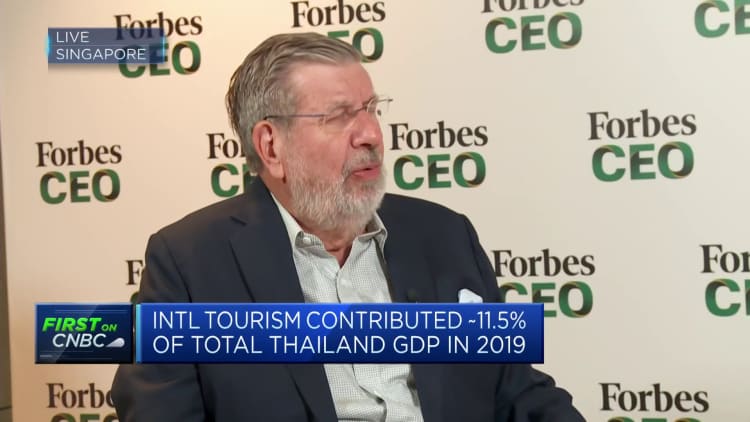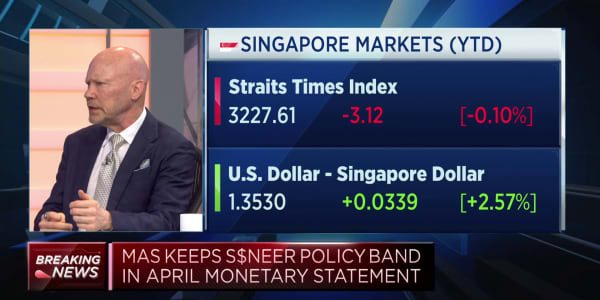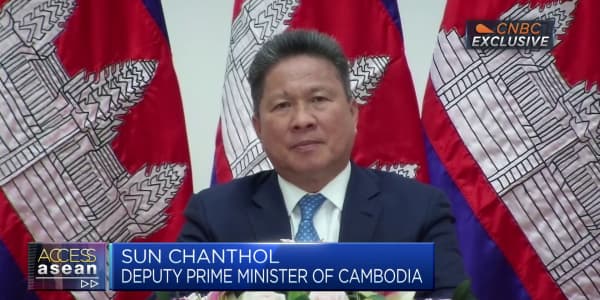Thailand's tourism recovery is poised for recovery as diplomatic relations with Saudi Arabia normalize and Chinese tourists return, according to American-born hotel tycoon William Heinecke.
"We've seen the recovery of all Saudi tourism into Thailand. Now there's two flights a day from Saudi direct to Thailand," Heinecke, who is chairman of Thai hospitality company Minor International, said on the sidelines of the Forbes Global CEO Conference in Singapore.
"There's more coming and there's a huge demand... Thailand has become a second home of choice for many people around the world. So we're very optimistic," Heinecke said, adding there has been more people from Eastern Europe, Russia and Ukraine purchasing real estate in Thailand.
In January last year, former Thai Prime Minister Prayut Chan-o-cha and Saudi Arabia's Crown Prince Mohammad bin Salman agreed to normalize diplomatic relations between the two countries. The meeting marked the thawing of relations after the 30-year "Blue Diamond Affair," which involved the theft of Saudi jewels and the deaths of Saudi diplomats in Thailand.

According to data from Thailand's tourism ministry, from January to July this year, there were more than 800,000 tourists from Russia visiting the Southeast Asian nation — that's more than 10 times the 77,935 tourists seen in 2022 over the same period.
Likewise, the total number of Ukrainian travelers visiting Thailand from January to July this year increased to 20,507 compared to 7,967 in the same period in 2022.
It's one stop from the Middle East to anywhere in the world. So the Middle East has become the hub for the world.William HeineckeChairman, Minor International
The Middle East is "one of the most dynamic markets," owing it to the region's airlines like Emirates and Qatar Airways, Heinecke said.
"All of these airlines. It's one stop from the Middle East to anywhere in the world. So the Middle East has become the hub for the world," he said.
Return of Chinese tourists?
Additionally, Heinecke said he expects Thailand to benefit when Chinese tourism is back in full swing.
"As China comes back, we believe that will be another large step" for Thai tourism, he said.
However, that may take a little more time, Heinecke noted.
"We've already seen the recovery of the Chinese but it's the high end [travelers]," he said. "The mass Chinese consumer is taking a little bit longer, but that's going to have an impact all over the world."
According to the Thai hospitality magnate, China has far surpassed Japan and other countries in their travel spending.
"So we remain very optimistic of the recovery," he said.
In 2022, Thailand received 11.15 million tourists, a jump from 428,000 in 2021, according to data from the Thailand tourism ministry. Thailand only removed most of its Covid-related restrictions for tourists on Oct. 1 last year.
While there's been a huge jump in the number of tourists, the 2022 figure is still a long way from the 40 million tourists who visited the Southeast Asian nation in 2019 — before the pandemic hit.
Thailand's economy is heavily dependent on the tourism sector, which accounted for about 11.5% of the country's GDP before the pandemic.






